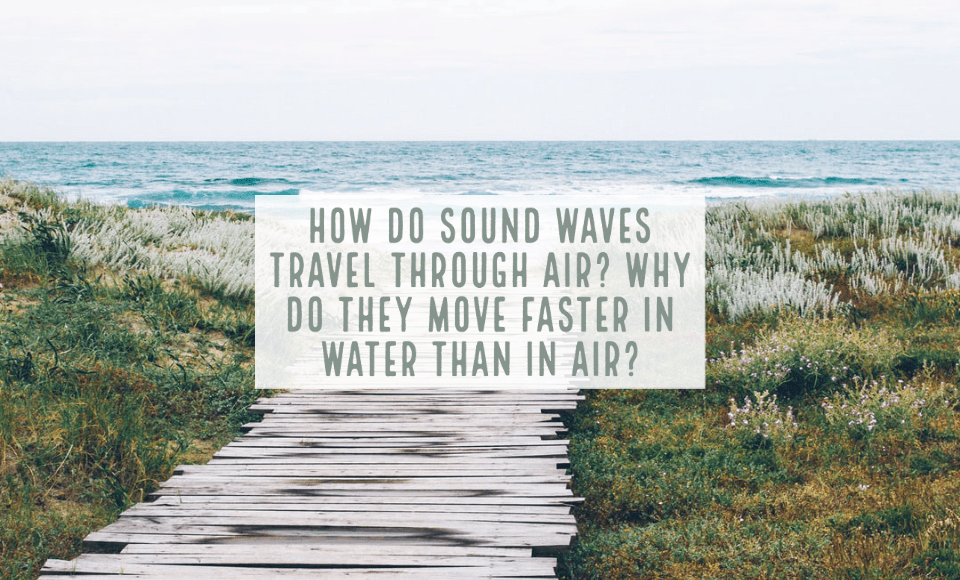If you touch a temple bell after ringing it, you would feel it vibrating—and vibration is due to the production of sound. The ringing temple bell passes on its vibrations to the surrounding air. It compresses the air as it moves outwards. Then it moves back, and the air expands back to occupy the space which its contracting side has left. (See diagram below).
The air in the immediate vicinity of the vibrating object itself passes on the vibrations to air adjacent to it, and in this way, the vibrations spread out from the source in all directions. These vibrations, which travel through the air are what we call sound waves. We hear them as sound when they strike our eardrums and cause them to vibrate. The vibrating eardrums send impulses to the brain, which interprets them as sound.
Sound waves travel in other things besides air—in water, for example. Surprisingly enough it travels faster in water than in air—more than four times as much. In fact, the denser the medium sound travels in, the higher its speed. (See table). It does not travel in a vacuum, of course, because there is no medium present to pass on the vibrating.
The most crucial aspect when it comes to sound traveling through air is the medium. We already know that light can pass through a vacuum to reach us on earth. However, the sound is not able to travel through a vacuum. It always needs a medium such as glass, water, or metal to pass through.
Another important aspect is that sound waves must have a source, e.g., clapping both hands together and plucking the strings of a guitar. Sound waves can be considered as an example of longitudinal waves. Whenever sounds travel through a medium such as air, it causes rarefactions and compressions. In addition to that, sound waves are given birth by oscillations such as a tuning fork, vocal chords, and musical instruments, etc. While it moves, it collides with the air molecules present in the air, eventually compressing them. The regions that are compressed then pass the energy to the molecules in neighbor as well, while the disturbance makes its way through the air.
Additionally, as we talk about the traveling of sound waves, it is imperative to mention that sound waves travel faster through water than air. The reason being, that sound waves depend on the medium and then the compression. If the medium through which the air is passing is less compressible, the faster it will bounce back. In that respect, water, as compared to air, is 15,000 times less compressible but has 800 times more density. Moreover, sound waves are compressional waves that are formed when particles hit each other along with passing the vibration. And, since water molecules are compacted together tightly, the vibrations can travel easily as compared to air.
